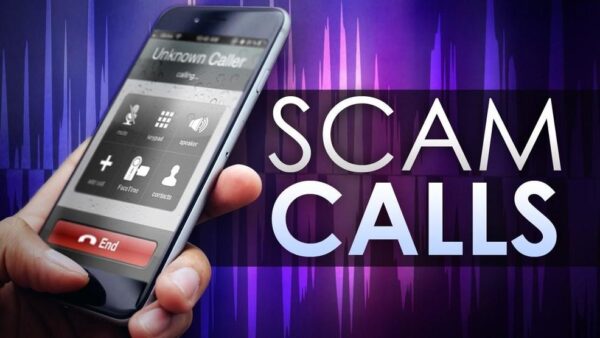Warning: 0120005441, 8008087000, 0120985480, 5031551046, 8009190347, 120999443, 222117258, 120252000, 0120-925-527, 120925318, 120998151, 570005040, 0120988315, 0120991013, 0120988315, 0120989393, 0120633439, 08005003225, 332659022, 120170001, 5088812828, 669104115, 5031599953, 120996085, 120979555, 8002229417, 922615616, 364358073, 8001009127, 5030336342, 120526888, 120917245, 364358073, 0120-252-000, 120868014, 120013175, 671669891, 120397663, 0570 005 040, 0120 247 218, 8007775926, 120426288, 050 3155 1046, 5053704031, 5031213937, 120954484, 0120 999 443, 120952650, 06 6910 4115 and 120961600 in in Japan.
Introduction
In recent times, many people in Japan have reported receiving mysterious and alarming phone calls from various numbers, including 0120005441, 0120991013, 8008087000, 5031551046, 8009190347, and 120999443. These calls have sparked curiosity and concern among the recipients, as they appear to be from unfamiliar sources and may lead to potential scams or fraudulent activities. In this article, we will delve into the details of these suspicious phone calls, their possible implications, and the measures individuals can take to protect themselves from falling victim to such scams.
The Rise of Suspicious Phone Calls
- Understanding the Situation
In recent months, there has been a surge in reports of people receiving calls from unknown numbers, particularly those starting with 0120005441, 0120991013, 8008087000, 5031551046, 8009190347, and 120999443. These numbers have raised red flags due to their recurrent nature and lack of recognizable identities. While the callers may use different tactics and approaches, one common aspect is the attempt to evoke a sense of urgency or fear in the recipient.
- Caller’s Intention
The intentions behind these suspicious phone calls can vary, but most are geared towards extracting sensitive information or money from the individuals who answer them. Some callers may claim to represent government agencies, financial institutions, or even well-known companies, using deceptive strategies to persuade the recipients to disclose personal details or make immediate payments.
- Impact on Recipients
Receiving these dubious phone calls can be a distressing experience for many individuals. Fear and anxiety may arise, as the callers often employ aggressive or intimidating language. Those who fall prey to the scams may suffer financial losses, identity theft, or other adverse consequences.
How to Protect Yourself
- Staying Informed
One of the best defenses against phone scams is knowledge. Stay informed about the current trends in phone scams, including the specific numbers that have been reported as suspicious. Regularly check official websites and forums for updates on new scams and warnings issued by authorities.
- Verify Caller Identity
If you receive a call from an unknown number claiming to be from an official organization, avoid providing any personal information right away. Politely ask for their contact details and inform them that you will call back after verifying their identity. Look up the organization’s official phone number from their official website or other reliable sources and call them back to ensure the legitimacy of the call.
- Do Not Share Sensitive Information
Be cautious about sharing sensitive information over the phone, such as your social security number, bank account details, or credit card information. Legitimate organizations usually do not ask for such information over the phone, especially unsolicited calls.
- Report Suspected Scams
If you suspect a phone call to be a scam or receive repeated unwanted calls from the same number, report it to the relevant authorities immediately. In Japan, you can contact the Japan Consumer Affairs Agency or local police to file a complaint and seek assistance.
Conclusion
The rise of suspicious phone calls, particularly from numbers like 0120005441, 0120991013, 8008087000, 5031551046, 8009190347, and 120999443, has become a significant concern for many people in Japan. The tactics employed by these scammers can be intimidating, leading to potential financial losses and identity theft. To protect oneself from falling victim to such scams, staying informed, verifying caller identities, refraining from sharing sensitive information, and reporting suspected scams are essential steps.
FAQs (Frequently Asked Questions)
- Are these phone calls only happening in Japan?
The reported phone calls have primarily been reported in Japan. However, phone scams can occur in various countries, so it’s crucial to remain vigilant regardless of your location.
- What should I do if I’ve already fallen victim to a phone scam?
If you believe you have been a victim of a phone scam, contact your local authorities or the police immediately. Also, notify your bank or financial institution to take necessary actions to protect your accounts.
- Can scammers use other phone numbers as well?
Yes, scammers can use various phone numbers to execute their schemes. They often change their numbers regularly to avoid detection.
- How can I educate my family and friends about these scams?
Share information about these scams through social media, email, or face-to-face conversations. Encourage your loved ones to be cautious when receiving calls from unknown numbers.
- Is there any way to block these suspicious numbers?
Yes, many smartphones and phone carriers offer call-blocking features. You can block specific numbers or report them as spam to help protect yourself and others.

